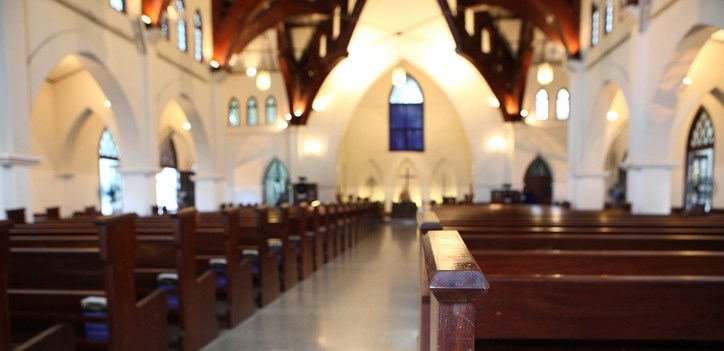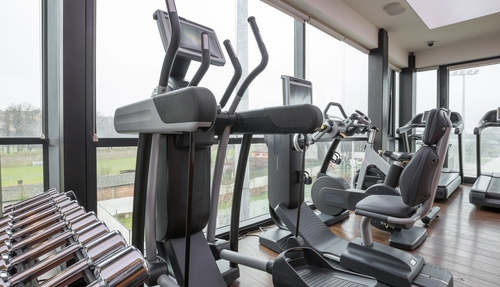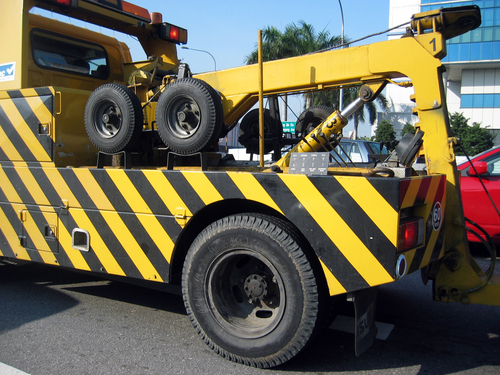By Kevin Calcagnie on December 29, 2015 -

Briggs v. Merck Sharp & Dohme (United States Court of Appeals, Ninth Circuit, August 6, 2015) — F.3d —-, 2015 WL 4645605
Five groups of plaintiffs filed personal injury and wrongful death actions in California state court, asserting various tort claims against manufacturers and a distributor of diabetes drugs. Each of the five cases has fewer than one hundred plaintiffs. However, defendant Merck removed the actions to federal court, asserting jurisdiction based upon the Class Action Fairness Act (“CAFA”), which authorizes the removal to federal court of “mass actions,” civil actions in which “monetary relief claims of 100 or more persons are proposed to be tried jointly on the ground that the plaintiffs’ claims involve common questions of law or fact.” 28 U.S.C. § 1332(d)(11)(B)(i).
The defendant contended that because there was already a coordinated state proceeding pending in Los Angeles County involving a second set of cases involving similar drugs, and in an earlier motion to remand the plaintiffs had indicated that “[R]emand will result in these cases joining the Judicial Council Coordinated Proceeding (JCCP), In re Byetta Cases, JCCP No. 4573, in Los Angeles, where coordination with this Court’s MDL is underway,” plaintiffs’ counsel’s expressed intent that the cases be transferred to the JCCP constituted a proposal to try the claims of those plaintiffs jointly.
The district court denied the motion to remand, but the 9th Circuit Court of Appeals reversed, holding that in none of the five cases did the plaintiffs propose that the claims of one hundred or more persons be tried jointly within the meaning of CAFA: Read the rest »
By Kevin Calcagnie on December 22, 2015 -

Z.V. v. County of Riverside (Fourth District, June 17, 2015) 238 Cal.App.4th 889, 189 Cal.Rptr.3d 570, 15 Cal. Daily Op. Serv. 7831, 2015 Daily Journal D.A.R. 8237
A 15-year-old who was sexually assaulted by a county social worker while in foster care brought an action against the worker and the County of Riverside. The plaintiff alleged that the social worker, who had volunteered to transport him to a new foster home, returned several hours after his shift had ended, and under the pretext of building “rapport,” took him to a liquor store and then to his apartment where the attack took place.
The defendant county moved for summary judgment, contending that it could not be held liable under the doctrine of respondeat superior, in that the assault did not occur within the course and scope of the social worker’s employment. The court of appeal affirmed, distinguishing the facts of the case from Mary M. v. City of Los Angeles (1991) 54 Cal.3d 202: Read the rest »
By Kevin Calcagnie on November 24, 2015 -

Whitlow v. Rideout Memorial Hospital, (Third District, June 9, 2015) 237 Cal.App.4th 631, 188 Cal. Rptr.3d 246, 15 Cal. Daily Op. Serv. 5902, 2015 Daily Journal D.A.R. 6373.
The children of a woman who died from a massive brain hemorrhage two days after being treated for a headache at a hospital emergency room, filed an action for medical malpractice against the hospital. The plaintiffs alleged that the physician, who was an independent contractor, was an ostensible agent of the hospital, and that his negligence was a cause of their mother’s death.
The hospital moved for summary judgment, contending that as a matter of law it could not be held liable for the acts of the physician, and provided evidence that the decedent had signed a “Conditions of Admission” form, which provided that “[a]ll physicians and surgeons furnishing services to the patient, including the radiologist, pathologist, anesthesiologist and the like, are independent contractors and are not employees or agents of the hospital.” The defendant also provided evidence that there was a sign on the wall of the registration area of the emergency department that stated: “Emergency physician services will be billed to you separately from the hospital’s services,” and that the insignia on the clothing the doctor was wearing while treating the decedent identified him as an employee of “California Emergency Physicians.”
The trial court granted the motion for summary judgment, finding that, as a matter of law, the emergency room physician was not the ostensible agent of the hospital. However, the court of appeal reversed, holding that triable issues of fact existed as to the question of ostensible agency: Read the rest »
By Kevin Calcagnie on October 22, 2015 -

Conti v. Watchtower Bible & Tract Society of New York, Inc. (First District, April 13, 2015) 235 Cal.App.4th 1214, 186 Cal.Rptr.3d 26, 15 Cal. Daily Op. Serv. 3573, 2015 Daily Journal D.A.R. 4094
A woman who was molested as a child by an adult male member of her church congregation filed suit against her abuser, the local congregation and Watchtower Bible and Tract Society, the entity overseeing the church. The plaintiff alleged that she had been repeatedly molested when she was paired with her abuser during “field service,” a church-sponsored activity where members go door-to-door preaching in the community. The plaintiff further alleged that because the other defendants were aware that the abuser had a prior conviction for child molestation, they had a duty to warn members of the congregation and limit and supervise his activities with children.
A jury returned a verdict in favor of the plaintiff, which included an award of punitive damages against Watchtower based upon a failure to warn. However, the court of appeal reversed as to the punitive damages award, finding that although the religious organization had a duty to use reasonable care to restrict and supervise the abuser’s field service to prevent him from harming children in the community and in the congregation, there was no duty to warn the congregation or the plaintiff’s parents that he had previously molested a child: Read the rest »
By Kevin Calcagnie on September 17, 2015 -
 Grebing v 24 Hour Fitness USA, Inc. (2nd Dist., January 29, 2105) 234 Cal.App.4th 631, 184 Cal.Rptr.3d 155.
Grebing v 24 Hour Fitness USA, Inc. (2nd Dist., January 29, 2105) 234 Cal.App.4th 631, 184 Cal.Rptr.3d 155.
A health club member who was injured while using exercise equipment known as a “low row machine” filed suit against the facility, asserting various theories of negligence and products liability. The plaintiff alleged that a connecting clip broke while he was pulling a handlebar connected to a cable running through pulleys and attached to weights, causing the handlebar to strike him in the forehead.
The defendant moved for summary judgment, arguing that the plaintiff had signed a release of liability assuming the risk of injury, which included the language: “Further, you understand and acknowledge that 24 Hour does not manufacture fitness or other equipment at its facilities, but purchases and/or leases equipment. You understand that 24 Hour is providing recreational services and may not be held liable for defective products.” The plaintiff opposed the motion, arguing that the defendant was in the chain of distribution and did not merely provide fitness services.
The trial court granted summary judgment and the court of appeal affirmed, holding that although products liability claims cannot be waived, the dominant purpose of the agreement was for services and not for provision of a product: Read the rest »
By Kevin Calcagnie on September 14, 2015 -

State ex rel. Dept. of California Highway Patrol v. Superior Court (Supreme Ct. of Calif., February 26, 2015) 60 Cal.4th 1002, 343 P.3d 415, 184 Cal.Rptr.3d 354.
A woman and her child who were injured when they were struck by a tow truck on Interstate 5 brought an action for personal injuries against the tow truck driver and his employer, as well as various public entities, including the California Highway Patrol. The plaintiff alleged that the tow truck was being operated under the Freeway Service Patrol (FSP) Act, a program jointly administered by the California Department of Transportation, the CHP, and local transportation agencies, under which motorists receive free emergency roadside assistance as a public service on California’s busiest highways. (Sts. & Hy.Code, § 2560 et seq). The plaintiff further alleged that the CHP was a special employer of the driver because it had contracted with the Orange County Transportation Authority overseeing the local program, to provide field supervision, program management, and oversight of contractor service quality.
The CHP moved for summary judgment, contending that there was no special employment relationship. The trial court denied summary judgment, but certified the question to the court of appeal. The court of appeal ruled that the CHP cannot be such a special employer as a matter of law, and directed entry of summary judgment. On review the California Supreme Court reversed and remanded, holding that although the statutes were incompatible with a special employment relationship between the CHP and tow truck drivers, that did not foreclose the possibility that the CHP could be a special employer: Read the rest »
By Kevin Calcagnie on September 3, 2015 -

Gonsalves v. Li, — Cal.Rptr.3d —-, 15 Cal. Daily Op. Serv. 375, 2015 Daily Journal D.A.R 473
A BMW salesman who was injured in a collision while riding as a passenger during a new vehicle test drive, filed suit against the driver who had caused the accident. At trial counsel for the plaintiff called the defendant as an adverse witness and, over multiple defense objections, extensively examined him regarding his responses to requests for admissions. When the defendant testified in the defense case-in-chief, plaintiff’s counsel again asked questions in cross-examination about his responses to the RFA’s, despite objections that questions about the denials were argumentative, called for legal opinions or were contention questions.
The trial court overruled the objections and admitted the RFA’s into evidence. In closing argument, plaintiff’s counsel urged the jury to consider the defendant’s failure to admit in response to the RFA’s that his pressure on the accelerator was a substantial factor in causing the accident, as evidence of his failure to take responsibility for the plaintiff’s injuries.
Following a jury verdict in favor of the plaintiff the court of appeal reversed, concluding that the discovery statutes do not authorize admission at trial of denials to RFA’s and that the trial court erred in allowing plaintiff’s counsel to examine the defendant about his qualified denials, and in admitting the written responses to the RFA’s: Read the rest »
By Kevin Calcagnie on August 13, 2015 -

Rashidi v. Moser, (Supreme Court of California, December 15, 2014) 60 Cal.4th 718, 339 P.3d 344, 181 Cal.Rptr.3d 59, 14 Cal. Daily Op. Serv. 13,880, 2014 Daily Journal D.A.R. 16,440
A patient who suffered blindness in one eye following a medical procedure relating to a nosebleed, filed an action for personal injuries against the doctor who performed the procedure. The plaintiff also asserted causes of action against the medical center and the manufacturer of tiny particles used in the procedure to block blood vessels. After settling with the latter two defendants, the plaintiff obtained a jury verdict against the physician, and the trial court reduced the noneconomic damages portion to the MICRA cap of $250,000. Although the defendant doctor did not establish at trial any fault on the part of the settling co-defendants at trial, he sought offsets against the judgment for the pretrial settlements.
The trial court denied the offsets, finding no basis for allocating the settlement sums between economic and noneconomic losses, and noting that the jury made no finding as to the settling defendants’ proportionate fault. The court of appeal held that offsets were required, but the California Supreme Court granted review and reversed as to any reduction for noneconomic losses. The court held that when a defendant who has gone to trial has failed to establish the comparative fault of the settling defendants, a jury’s award of noneconomic damages already reduced to the MICRA limit may not be further diminished by pretrial settlements attributable to noneconomic losses: Read the rest »
By Kevin Calcagnie on January 20, 2015 -
Ennabe v. Manosa, (Supreme Court, February 24, 2014) 58 Cal.4th 697, 319 P.3d 201, 168 Cal.Rptr.3d 440, 14 Cal. Daily Op. Serv. 1870, 2014 Daily Journal D.A.R. 2176
The parents of a 19-year-old man who was killed when he was struck by a drunk minor driving away from a private party, filed a wrongful death action against a woman who had hosted the party. The plaintiffs alleged that the defendant had hosted the party at a vacant rental residence owned by her parents, that she had publicized the party via telephone, word of mouth and text messaging, and that she had charged “unfamiliar partygoers” among the 40 to 60 people in attendance $3 to $5, for which they were allowed access to beer and other alcoholic beverages available on the premises. The plaintiffs also alleged that the minor, who had paid the admission fee, was obviously intoxicated when he arrived on the premises, and yet was permitted to pay the fee and drink.
Read the rest »
By Kevin Calcagnie on August 21, 2014 -
Spriesterback v. Holland (2013) 215 Cal.App.4th 255, 155 Cal.Rptr.3d 306
A bicyclist who was injured when he was struck on a sidewalk by a car exiting a supermarket parking lot, filed a negligence action against the driver. The plaintiff had been traveling eastbound on a sidewalk on the north side of the street against the flow of vehicular traffic when the car slowly pulled out across his path. At the request of the defendant, the trial court instructed the jury that riding a bicycle on the sidewalk in the opposite direction of street traffic violated the Vehicle Code and was therefore negligence per se.
Following a jury verdict in favor of the defendant, the plaintiff appealed, contending that the trial court had erred in instructing the jury as to negligence per se. The court of appeal affirmed the verdict, but agreed that the instruction should not have been given, as it was inconsistent with the language of Vehicle Code § 21650.1: Read the rest »
 RSS
RSS







 Los Angeles
Los Angeles